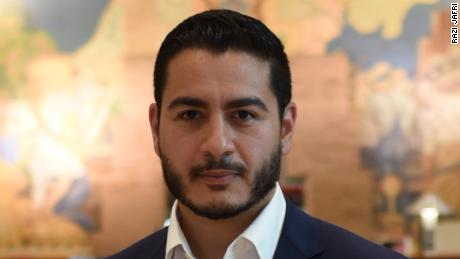It’s hard to remember that it hasn’t even been two years since the pandemic — and all that came with it — befell us.
That’s because it’s been a singular, all-encompassing experience. Generations hence, they’ll talk about us like we talked about the generation who lived through the Depression.”They lived through the pandemic” will be a shorthand to explain why we reflexively wear a mask on airplanes or ask about a restaurant’s air filtration system before its menu.
But one aspect of the pandemic experience that can’t simply be explained by the existence of an exceedingly transmissible, deadly virus spreading between us is the sheer absurdity that it brought with it. Whether boarding an airplane with underwear on your face to protest mask requirements, injecting yourself with horse dewormer instead of a safe and effective vaccine or swallowing household disinfectants because the President of the United States unironically suggested that it might help, the pandemic has amplified the frequency and tenor of ridiculous and sometimes alarming behavior.
Nothing typifies that absurdity quite like the trucker protests now gripping Canada.
In late January, a convoy of truckers in Canada headed cross-country, from British Columbia to the nation’s capital in Ottawa, to protest a mandate, which requires truckers entering Canada to be vaccinated or else be subjected to testing and quarantine requirements.
The demonstration quickly grew, with thousands of people clogging traffic and obstructing the US-Canada border. A couple of weeks in to the protest, the demands of the loosely organized truckers still remain unclear. Some are calling this specific mandate “unconstitutional,” while others have expanded to calling on Prime Minister Justin Trudeau to end all Covid restrictions.
To appreciate just how strange this moment is, let’s go way back to before Covid-19 was a word. Many of us would have expected that if a deadly virus began to spread among us, we, as a society, would look to doctors and scientists for answers. We’d demand public policy driven by their rational, evidence-based reasoning.
Sure, there’d be differences of opinion on a few key issues and the odd iconoclast or two who’d just never come along. But for the most part, we’d develop a collective approach to defeating the virus and do what needed to be done to get through the pandemic. And, let’s be clear, that’s exactly what a majority of people did.
Yet, from the jump, echoing the then-President who hid early evidence of how bad the public health crisis was becoming seemingly to protect stock prices, some began to argue that “the cure,” meaning precautionary health measures, was “worse than the disease.”
They pointed to the ways that lockdowns were hurting small businesses and school closures were robbing young children of the ability to go to learn at school, socialize with their classmates or receive the free school meals on which too many of our children rely. They argued that masks were just annoying. They resented the imposition on their lives.
And, to be sure, they weren’t wrong about any of these things: Each of these was a real cost of Covid-19 restrictions. It’s just that the cost of viral transmission — which led to disease and death — was profoundly and obviously greater.
But what began as fair disagreements started to mutate like the virus itself. Frustration with lockdowns inspired armed militiamen to storm the Michigan state Capitol and allegedly plot to harm elected officials. Around the country, the fight to keep schools open during later waves of Covid-19 exploded into massive protests against the very things that could keep kids in school safely — masks and vaccines.
The frustration with having to wear masks in public spaces set off adult temper tantrums directed at retail employees and flight attendants.
And that’s where the Canadian truckers come in. Their protests have spread to cities across Canada and beyond, effectively grinding to a standstill daily life in communities across the country. Now, they’re impeding the Ambassador Bridge between Detroit and Windsor, Ontario, one of the most active arteries for transnational commerce.
Here’s what’s so absurd about it: The protest over Covid restrictions is now disrupting peoples’ everyday lives — which is what the protest was supposedly aimed at stopping. They’ve lost the plot.
But perhaps it was the plot the whole time. It’s impossible to divorce this moment from the sociopolitical trends in that are also shrouded in absurdity — the emergence of far-right movements around the world, the rash of proto-fascists and autocrats who’ve come to power, the salience of online conspiracy theories that spilled out of algorithms and into the real world in horrific ways.
In that context, perhaps the pandemic wasn’t the substrate for the absurdity we’re witnessing, but a catalyst that simply accelerated what had already been happening.
Either way, as the virus begins to ebb and we begin to imagine what post-pandemic life may hold for us, we must understand that the pandemic won’t end when the virus recedes — but when the absurdity that came with it does, too.






